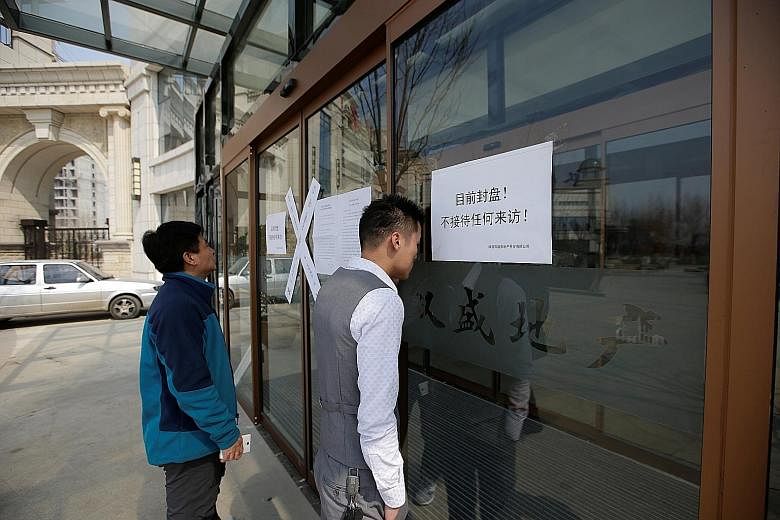BEIJING • It did not take long for news that China would set up an economic zone near Beijing to touch off an investor frenzy.
Within 24 hours of last Saturday's announcement that the government would create the Xiongan area in Hebei province - in the same spirit that Shenzhen and Shanghai's Pudong were built - hordes of prospective buyers had thronged to the region.
Highways were clogged as they came to purchase real estate, with some camping outside property agent offices overnight, according to local media reports. On Sunday, the government banned all property sales in the zone to stem speculation, according to the National Business Daily.
Yesterday, shares of Chinese cement, building and port-related stocks surged in Hong Kong amid optimism the decision will spark a flurry of construction activity.
The move by President Xi Jinping, which evokes memories of the rise of Shenzhen since it was declared a special economic zone more than three decades ago, is seen as a historic milestone to power China's growth for a "millennium to come", the official Xinhua news agency reported.
The new zone is expected to eventually cover about 2,000 sq km and jump-start the country's economic growth.
"This would be one of the centrepieces of a high-level development plan for the Beijing- Tianjin-Hebei region," said Mr Bill Bowler, a sales trader at Forsyth Barr Asia in Hong Kong. "I would liken it to the development of a brand new New York City, with Beijing as Washington. The regional plan has been termed a '1,000-year project'."
The development of the region will create an urban district in Hebei that will help move some of the non-capital functions away from Beijing, Xinhua reported last Saturday. The new district would initially cover an area of about 100 sq km, and the authorities want to turn the region into a new growth centre as China's economy slows, according to the news agency.
Shares of cement company BBMG surged as much as 46 per cent in its biggest gain since July 2009. Tianjin Port Development Holdings rallied 14 per cent and China National Building Material advanced 7 per cent.
"China's new economic zone plan makes investors feel more optimistic about China's economic outlook," said research head Castor Pang at Core Pacific-Yamaichi in Hong Kong. "The investment plan could support demand for cement, steel and construction-related materials in the next 10 years."
Investor euphoria surrounding the plan may cause a headache for the authorities, who have vowed to crack down on speculative buying frenzies. President Xi and his policymakers have pledged to curb excess leverage in the financial system and have committed to enforce prudent and neutral monetary policy to deflate bubbles.
Soaring home prices in cities such as Shenzhen, Beijing and Shanghai have prompted the authorities to impose restrictions to cool the market. China's central bank last month asked banks in Beijing to scrutinise home loans to newly divorced couples and funding sources for borrowers, adding to other curbs to cool the market.
BLOOMBERG

